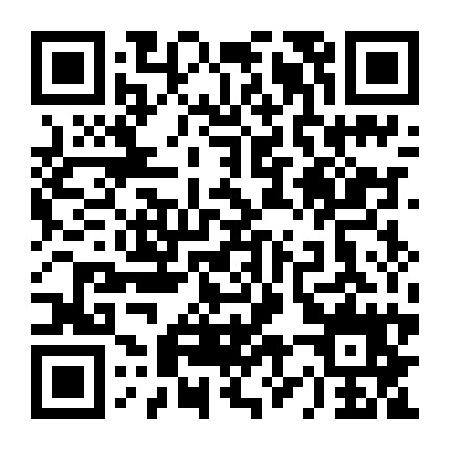2019考博英语完形填空模拟题附答案(十四)
考博英语完形填空考题在难度上趋近于考研。侧重考查在阅读理解的基础上对篇章结构、语法和词汇知识的运用能力。不论是在何种考试中出现,考博英语完形填空都是失分比较惨重的题型,鉴于此,完型只需要精选精做适量题目即可,新东方在线考博频道整理了2019考博英语完形填空模拟题附答案供大家参考复习。
About 40 percent of Americans think of themselves as shy, while only 20 percent say they have never suffered from shyness at some point in their lives. Shyness occurs when a person’s apprehensions are so great that they 1 his making an expected or desired social response. 2 of shyness can be as minor as 3 to make eye contact when speaking to someone, 4 as major as avoiding conversations whenever possible.
“Shy people tend to be too 5 with themselves,” said Jonathan Cheek, a psychologist, who is one of those at the forefront of current research on the topic. “ 6 , for a smooth conversation, you need to pay attention to the other person’s cues 7 he is saying and doing. But the shy person is full of 8 about how he seems to the other person, and so he often 9 cues he should pick up. The result is an awkward lag in the conversation. Shy people need to stop focusing on 10 and switch their attention to the other person.”
11 , shy people by and large have 12 social abilities than they think they do. 13 Dr. Cheek videotaped shy people talking to 14 , and then had raters (评估者) evaluate how socially skilled the people were, he found that, in the 15 of other people, the shy group had few 16 problems. But when he asked the shy people themselves 17 they had done, they were unanimous in saying that they had been social flops (失败).
“Shy people are their own 18 critics,” Dr. Cheek said. 19 he added, shy people feel they are being judged more 20 than they actually are, and overestimate how obvious their social anxiety is to others.
1. [A] prevent[B] inhibit[C] keep[D] motivate
2. [A] Symptoms[B] Signals[C] Highlights[D] Incidences
3. [A] succeeding[B] failing[C] acting[D] responding
4. [A] but[B] not[C] or[D] nor
5. [A] preoccupied[B] absorbed[C] engaged[D] indulged
6. [A] However[B] Then[C] For example[D] Instead
7. [A] that[B] which[C] what[D] how
8. [A] worries[B] feelings[C] emotions[D] indifferences
9. [A] follows[B] picks up[C] misses[D] catches
10.[A]the conversation[B] shyness[C] others[D] themselves
11. [A] Therefore[B] Nevertheless[C]On the contrary[D] Similarly
12. [A] worse[B] as good[C] better[D] best
13. [A] When[B] Since[C] While[D] As
14. [A] themselves[B] friends[C] strangers[D] others
15. [A] name[B] terms[C] ease[D] eyes
16. [A] oblivious[B] obvious[C] oblique[D] obscure
17. [A] what[B] whatever[C] how[D] however
18. [A] best[B] justice[C] fair[D] worst
19. [A] In particular[B] In contrast[C] In general[D] In comparison
20. [A] positively[B] negatively[C] subjectively[D] objectively

通用考博英语精品课程【节选】-1元领!
摸清考试命脉,有技巧有方法有准备地进入到考博英语中。

 资料下载
资料下载
【必看】考博英语词汇10000例精解
发布时间:2020-09-02关注新东方在线服务号
回复【10000】免费获取
医学考博英语作文核心基础词汇整理
发布时间:2020-04-15关注新东方在线服务号
回复【医学考博】获取
医学考博英语阅读理解练习资料
发布时间:2020-04-15关注新东方在线服务号
回复【医学考博】获取
法学考博英语高频词汇word版
发布时间:2020-04-15关注新东方在线服务号
回复【医学考博】获取
医学博士英语统考真题及解析
发布时间:2019-12-26关注新东方在线服务号
回复【考博真题】获取
全国医学博士外语统一考试真题
发布时间:2019-12-26关注新东方在线服务号
回复【考博真题】获取
中科院考博英语复习备考实战经验分享
发布时间:2019-12-26关注新东方在线服务号
回复【考博经验】获取
中科院考博英语真题练习资料
发布时间:2019-12-26关注新东方在线服务号
回复【考博真题】获取

关注新东方在线服务号
关注新东方在线服务号,
免费获取考博必看干货资料

 推荐阅读
推荐阅读
2021考博英语作文词句素材:环保类话题常见词汇
2021考博英语作文词句素材:同义替换之名词篇
2021考博英语作文词句素材:同义替换之动词篇
2021考博英语作文词句素材:词义辨析
2021考博英语作文词句素材:倍数的表达


 考博好课推荐
考博好课推荐
1节课解读博士考试,掌握备考秘诀!
价格 : ¥0元
基础薄弱,备考迷茫,送纸质资料
价格 : ¥2280元
资深教师,教学简明,直接有效!
价格 : 0元
 资料下载
资料下载
关注新东方在线服务号
回复【10000】免费获取
关注新东方在线服务号
回复【医学考博】获取
关注新东方在线服务号
回复【医学考博】获取
关注新东方在线服务号
回复【医学考博】获取
关注新东方在线服务号
回复【考博真题】获取
关注新东方在线服务号
回复【考博真题】获取
关注新东方在线服务号
回复【考博经验】获取
关注新东方在线服务号
回复【考博真题】获取

 阅读排行榜
阅读排行榜
 相关内容
相关内容